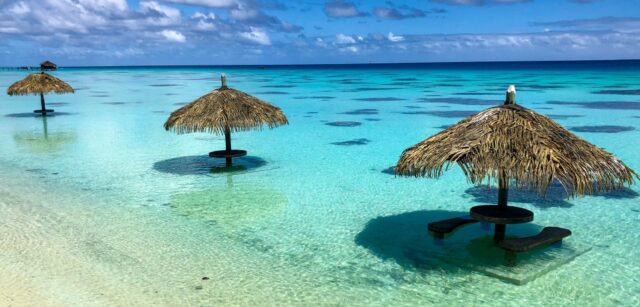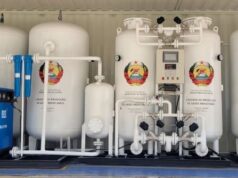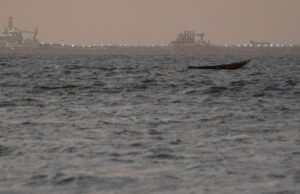
Cape Verde has become malaria-free, according to a declaration made by the World Health Organization (WHO). The West African country consisting of nine islands has been certified by the WHO to tackle the menacing vector-borne disease with years of effort. The recently held function to declare the country as malaria-free was attended by WHO Director-General Dr Tedros Adhanom Ghebreyesus.
Cape Verde Prime Minister Ulisses Correia e Silva was also present at the occasion. Cape Verde depends on tourism, particularly from the West Europe. The high incidence of malaria was a deterring factor in attracting more tourists to the country, which has various exotic tourist spots on its various islands.
Significantly, Cape Verde is the third country in the African region to achieve elimination status of the disease, following Mauritius and Algeria. Africa carries a high share of the global malaria burden. In 2022, the region was home to 94% of malaria cases (233 million) and 95% (580,000) of malaria deaths.
Of late, the tourism sector has picked up appreciably in the island country and has reached its pre-pandemic stage in 2022. The Bank of Cabo Verde released numbers showing a whopping 481.5 percent increase in visitors when compared to 2021 numbers. The country’s total number of visitors in 2022 was 785,272. This trend in tourist flow should be seen against the backdrop of sluggishness in global tourism, which is still 34% behind the pre-pandemic numbers.
Cabo Verde’s tourism industry had to pay a high price during the pandemic days. Compared with 2019’s figures, it was down by 76.3 percent in 2020 and 24.9 percent in 2021, leading to significant revenue loss. The revenue loss on account of tourism was 68.1 percent and 13.3 percent respectively for 2020 and 2021.
Most of the tourists in 2022 came largely from Europe, with most visitors hailing from the UK (31 percent), Germany (11.5 percent), the Netherlands and Belgium (10.5 percent) and Portugal (10.5 percent). Demand was concentrated in the third and fourth quarters of last year.
The islands of Boa Vista and Sal are the preferred destinations for both foreign and national tourists, accounting for 92.6 percent of stays in Cabo Verde.
Nearly every island in Cabo Verde’s archipelago – save São Vicente and São Nicolau – added new rooms last year, but only Boa Vista landed in the ideal occupancy range of between 70 and 95 percent. Tourism represents about 25 percent of the country’s gross domestic profit (GDP).
The Island country is well connected. The major airlines that operate their services to Cape Verde include are: TAP Portugal, RAM., Swiss, Ryanair, Azores Airlines, Lufthansa, and Easyjet.
Apart from tourism, the country has fishery reserves. The presence of an efficient network of banks and its agreement with Portugal to guarantee exchange rate stability is another added feature of the country. Importantly, 20% of the country’s energy consumption currently comes from solar panels and wind turbines, with a target of 50% by 2030.
Like any other island country in the African region, most of the West African country’s revenue comes from tourism and therefore, there is a weak diversification of the economy. Weak diversification of the economy and dependence on tourism. Cabo Verde has high debt and its infrastructure needs to be toned to make transportation quick and fast. Excessive imports of food items (almost 85% of the requirements) and energy make the country debt-ridden.
Cape Verde’s main exports are fish (75 percent of total exports) and clothing (10 percent). The main export partner is Spain (86 percent of total exports) followed by Portugal (10 percent) and the United States.
Imports The top imports of Cape Verde are Delivery Trucks ($117M), Refined Petroleum (USD 93.5M), Cars (USD 20.4M), Raw Iron Bars ($19.7M), and Cement (USD 16.7M), importing mostly from Portugal (USD 355M ), South Africa (USD 114M), China (USD 84.4M), Spain (USD 80.7M), and the Netherlands (USD 67.3M).
Cabo Verde has bilateral investment agreements with Angola, China, Cuba, Germany, Italy, Mauritius, the Netherlands, Portugal, and Switzerland. It enjoys a special partnership with the European Union as a Peripheral Region Nation and is a member of ECOWAS.
The Government of Cabo Verde welcomes international investment, provides prospective investors with “one-stop shop” assistance through its investment promotion agency Cabo Verde TradeInvest, and offers incentives and tax breaks for investments in multiple sectors, most notably tourism and information and communication technology.
Cabo Verde’s political stability, democratic institutions, and economic freedom lend predictability to its business environment. Free and fair elections, good governance, prudent macroeconomic management, openness to trade, increasing integration into the global economy, and the adoption of effective social development policies all contribute to a favorable climate for investment. Cabo Verde receives high marks on international indicators for transparency and lack of corruption. There are few regulatory barriers to foreign investment in Cabo Verde, and foreign investors receive the same treatment as Cabo Verdean nationals in the areas of taxes, licenses and registration, and access to foreign exchange.
The country’s strategic location and growing (though still limited) connectivity with other West African nations could make it a potential gateway for investors interested in a foothold from which to expand to the continent.
As Cabo Verde’s low proportion of arable land, scant rainfall, lack of natural resources, territorial discontinuity, and small population make it a high-cost economy with few economies of scale, the country relies on foreign investment, imports, development aid, and remittances. Despite the challenges, in 2007 the country became only the second ever to graduate from least developed country status, and it met most of its Millennium Development Goals by 2015.
In July 2022, the government signed a 40-year concession agreement with international airport management firm Vinci Airports, and it could issue privatization tenders for ports management, the electric utility, and the state-owned pharmaceutical company later in 2023. While the business and investment climates continue to improve, there remain bureaucratic, linguistic (relatively few English or French speakers), and cultural challenges to overcome.
The Cabo Verde Ambition 2030 plan and the government’s Strategic Plan for Sustainable Development (PEDS II) for 2022 – 2026 highlight opportunities in sustainable tourism, renewable energy, blue and digital economies, and transportation. Cabo Verde aims to generate 50 percent of its electricity from renewable sources by 2030 and 100 percent by 2040. Diversification of the economy remains a priority, but still high public debt levels of an estimated 127.2 percent of GDP in 2022 limit government funding capacity.










